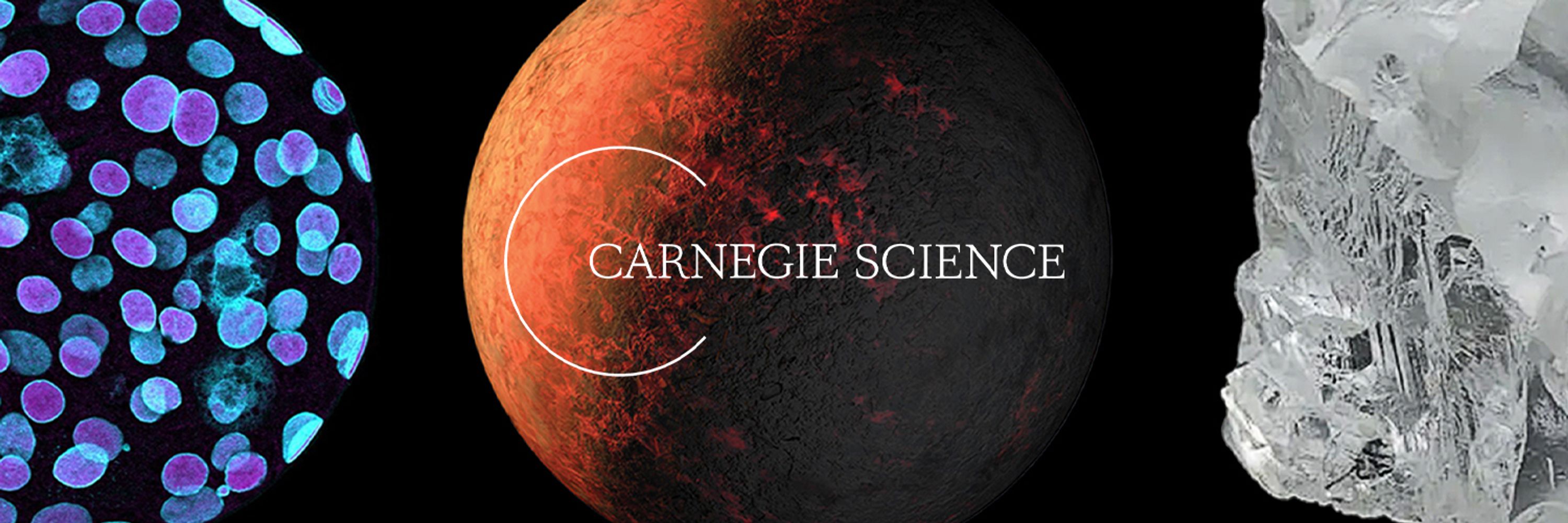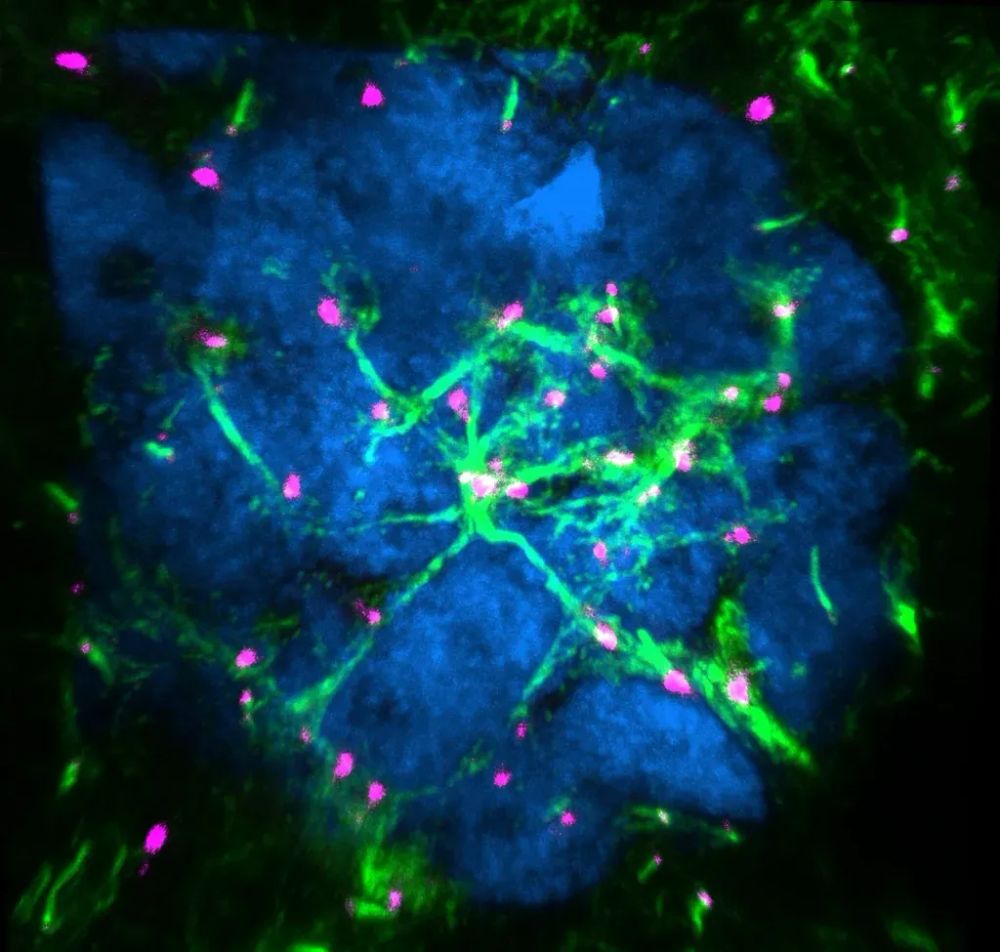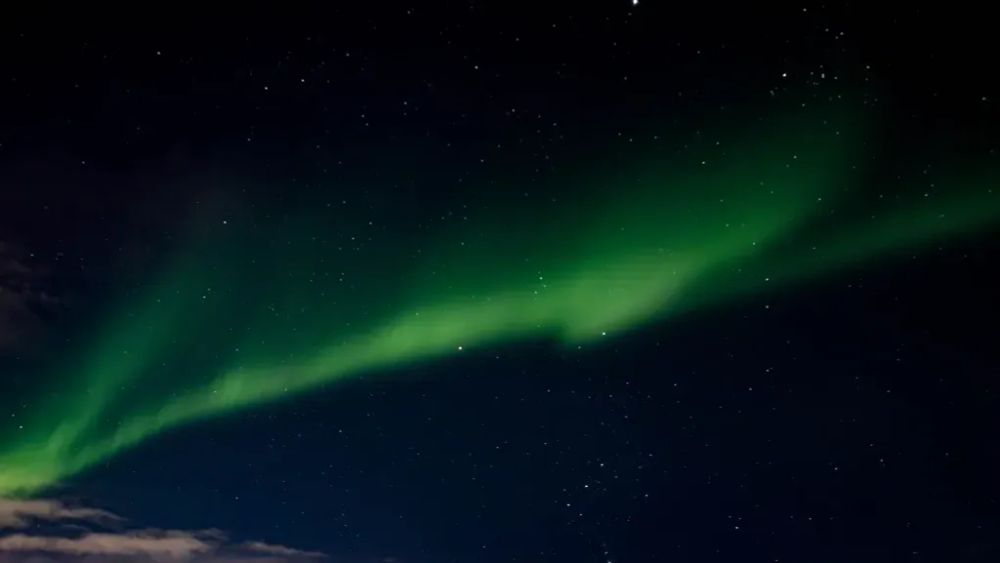
Let’s get into it. (1/6)
👉 carnegiescience.edu/chemical-evi...

Let’s get into it. (1/6)
👉 carnegiescience.edu/chemical-evi...

We're delighted to spot two Carnegie scientists among @clarivateag.bsky.social's #HighlyCited2025. Congratulations to Joseph A. Berry and Lorenzo Rosa!
Learn more about their work👇
bit.ly/4riqrlB

We're delighted to spot two Carnegie scientists among @clarivateag.bsky.social's #HighlyCited2025. Congratulations to Joseph A. Berry and Lorenzo Rosa!
Learn more about their work👇
bit.ly/4riqrlB
We pulled out 5 of the most mind-blowing ideas and posted the full recording here.👇🤯
carnegiescience.edu/five-ways-ca...

We pulled out 5 of the most mind-blowing ideas and posted the full recording here.👇🤯
carnegiescience.edu/five-ways-ca...

The New York Times featured new research that reveals thousands of “lost sisters” of the Pleiades—and Carnegie's Luke Bouma shared how the discovery helps astronomers trace our stellar origins. @nytimes.com
www.nytimes.com/2025/11/12/s...

The New York Times featured new research that reveals thousands of “lost sisters” of the Pleiades—and Carnegie's Luke Bouma shared how the discovery helps astronomers trace our stellar origins. @nytimes.com
www.nytimes.com/2025/11/12/s...
New research from a team including Carnegie astronomer Luke Bouma reveals the Pleiades are the core of a massive stellar complex spanning nearly 2,000 light-years.
Meet the ✨ Greater Pleiades Complex✨ :
bit.ly/3WSsheN

New research from a team including Carnegie astronomer Luke Bouma reveals the Pleiades are the core of a massive stellar complex spanning nearly 2,000 light-years.
Meet the ✨ Greater Pleiades Complex✨ :
bit.ly/3WSsheN
Join NASA astrobiologist and author Dr. Caleb Scharf (@calebscharf.bsky.social) for The Giant Leap—a look at how humanity’s move into space could reshape life itself.
⌛6:30 PM | NW DC | There's still time to RSVP!
🎟️ bit.ly/4qxBBT7



Join NASA astrobiologist and author Dr. Caleb Scharf (@calebscharf.bsky.social) for The Giant Leap—a look at how humanity’s move into space could reshape life itself.
⌛6:30 PM | NW DC | There's still time to RSVP!
🎟️ bit.ly/4qxBBT7
🎥 Recording + recap: bit.ly/43VgArv
#PostdocAppreciation


🎥 Recording + recap: bit.ly/43VgArv
#PostdocAppreciation
Join NASA Ames astrobiologist @calebscharf.bsky.social as we venture into the void to see how space exploration is reshaping our next great leap.
🗓️ 11/6 | 6:30 PM EST
📍 Carnegie Science, NW DC & Online
🎟️ RSVP → bit.ly/4qxBBT7

Join NASA Ames astrobiologist @calebscharf.bsky.social as we venture into the void to see how space exploration is reshaping our next great leap.
🗓️ 11/6 | 6:30 PM EST
📍 Carnegie Science, NW DC & Online
🎟️ RSVP → bit.ly/4qxBBT7
A new study in @Nature, led by Carnegie’s Anat Shahar & #CarnegieAlum Francesca Miozzi (now at @ethz.ch), shows that water can form naturally during planet formation when hydrogen-rich atmospheres meet molten rock.
No comets required. (1/9)
👉 bit.ly/48QEOXr

A new study in @Nature, led by Carnegie’s Anat Shahar & #CarnegieAlum Francesca Miozzi (now at @ethz.ch), shows that water can form naturally during planet formation when hydrogen-rich atmospheres meet molten rock.
No comets required. (1/9)
👉 bit.ly/48QEOXr
Tune in: www.youtube.com/live/k4oLyBC...

Tune in: www.youtube.com/live/k4oLyBC...

Your curiosity made the day shine, and we can’t wait to do it again next year!
Until then, check out our upcoming events:
👉 https://bit.ly/43vMivk




Your curiosity made the day shine, and we can’t wait to do it again next year!
Until then, check out our upcoming events:
👉 https://bit.ly/43vMivk


@carnegiescience.bsky.social
www.nature.com/articles/s41...
@carnegiescience.bsky.social
www.nature.com/articles/s41...
📅 10/25/25 | 1–4 PM
📍 5241 Broad Branch Rd NW
🎟️ Free & family-friendly
Learn more & RSVP 👇
https://bit.ly/4774I6F

📅 10/25/25 | 1–4 PM
📍 5241 Broad Branch Rd NW
🎟️ Free & family-friendly
Learn more & RSVP 👇
https://bit.ly/4774I6F
We’re opening our doors (& telescopes!) for an afternoon of cosmic fun here in Pasadena. Come explore the universe, meet real astronomers,& soak up some science!
🕑 TODAY | 2–5 PM
🎟️ Free
🔗 bit.ly/obs-open-house-2025




We’re opening our doors (& telescopes!) for an afternoon of cosmic fun here in Pasadena. Come explore the universe, meet real astronomers,& soak up some science!
🕑 TODAY | 2–5 PM
🎟️ Free
🔗 bit.ly/obs-open-house-2025
The winning design will be revealed in our 2025 holiday card.
Make sure to vote by Oct 8 (TOMORROW!) 👇
carnegiescience.edu/news/vote-ca...



The winning design will be revealed in our 2025 holiday card.
Make sure to vote by Oct 8 (TOMORROW!) 👇
carnegiescience.edu/news/vote-ca...
Try two. Or three. Or twenty. 😉
That's right, you can cast unlimited votes for your favorite holiday card design. Tag your friends and share the love! ⬇️
carnegiescience.edu/news/vote-ca...

Try two. Or three. Or twenty. 😉
That's right, you can cast unlimited votes for your favorite holiday card design. Tag your friends and share the love! ⬇️
carnegiescience.edu/news/vote-ca...
Carnegie scientists & staff submitted some incredible artwork for our 2025 holiday card—and now it’s time to VOTE!
🗳️ Cast your vote for one of our three finalists by Oct 8 carnegiescience.edu/news/vote-ca...

Carnegie scientists & staff submitted some incredible artwork for our 2025 holiday card—and now it’s time to VOTE!
🗳️ Cast your vote for one of our three finalists by Oct 8 carnegiescience.edu/news/vote-ca...
Our scientists & staff submitted stunning artwork for our annual holiday card contest. Which design do YOU think should win?
🗳️ Cast your vote by Oct 8
carnegiescience.edu/news/vote-ca...

Our scientists & staff submitted stunning artwork for our annual holiday card contest. Which design do YOU think should win?
🗳️ Cast your vote by Oct 8
carnegiescience.edu/news/vote-ca...
Now it's time for YOU to decide the winner!
Voting ends Oct 8. 👇
carnegiescience.edu/news/vote-ca...



Now it's time for YOU to decide the winner!
Voting ends Oct 8. 👇
carnegiescience.edu/news/vote-ca...
Join Earth & Planets Laboratory postdocs Sierra Grant & Shubham Kanodia as they reveal how planets are born—and the giants that defy the rules. #NeighborhoodLecture
📅 Sept 25 | 6:30 PM ET | DC & Online
🔗 RSVP: carnegiescience.edu/birth-worlds...

Join Earth & Planets Laboratory postdocs Sierra Grant & Shubham Kanodia as they reveal how planets are born—and the giants that defy the rules. #NeighborhoodLecture
📅 Sept 25 | 6:30 PM ET | DC & Online
🔗 RSVP: carnegiescience.edu/birth-worlds...

